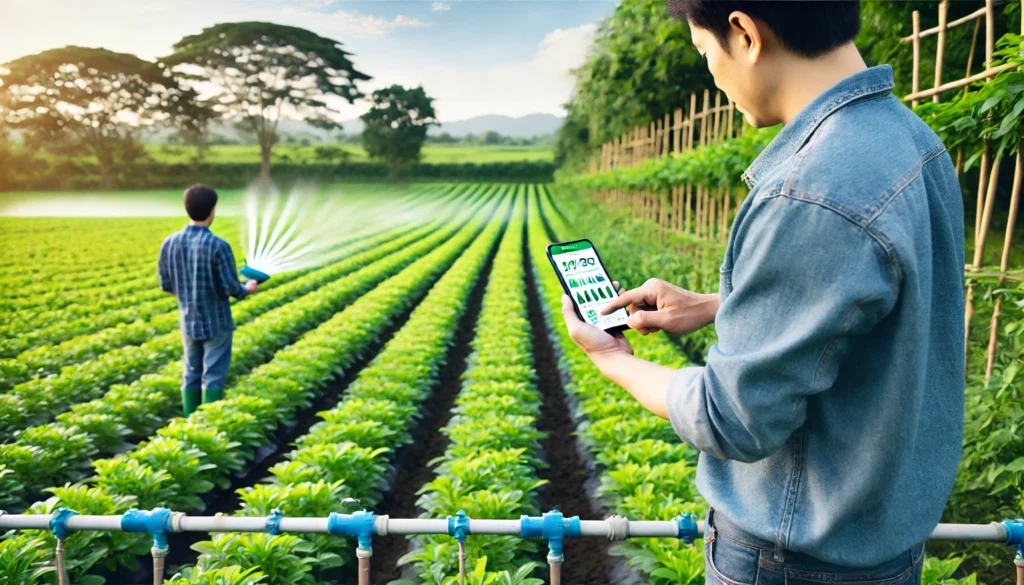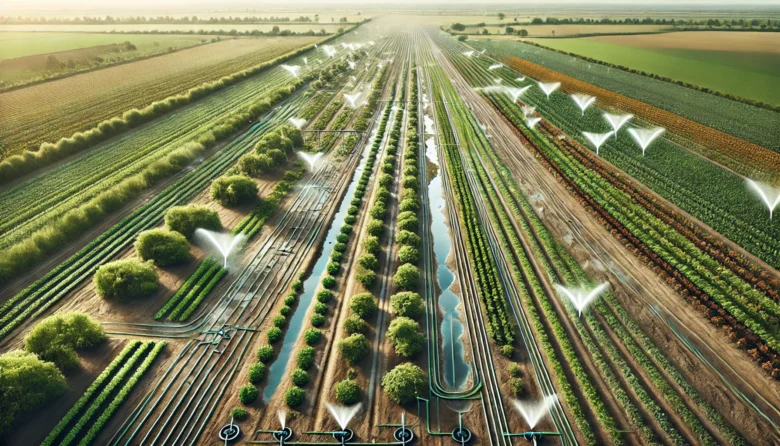In the vibrant fields of India, where agriculture forms the backbone of our economy, water plays a pivotal role. Efficient use of water is critical for sustainable farming, and that’s where smart irrigation systems come into play. Today, we delve into how smart irrigation systems are revolutionizing water efficiency in agriculture across India.
What are Smart Irrigation Systems?
Smart irrigation systems are advanced technologies designed to optimize water usage in agricultural fields. Unlike traditional methods, these systems use real-time data and automated controls to ensure that crops receive the right amount of water at the right time.
The Need for Smart Irrigation in India
India, with its diverse climate and vast agricultural lands, faces significant water management challenges. Traditional irrigation methods often lead to water wastage, either by overwatering or by inefficient distribution. Smart irrigation systems address these issues by:
- Reducing water wastage
- Enhancing crop yield
- Lowering labor costs
- Promoting sustainable farming practices

How Do Smart Irrigation Systems Work?
Smart irrigation systems utilize an integration of sensors, controllers, and real-time data. Here’s how they function:
Soil Moisture Sensors: These devices assess the soil’s moisture content, making sure water is supplied only when needed.
Weather Data Integration: By using weather forecasts and real-time data, these systems can adjust watering schedules based on upcoming rainfall or temperature changes.
Automated Controllers: These devices manage the irrigation schedule, turning the water on and off as needed.
Mobile Apps: Many smart irrigation systems come with mobile applications, allowing farmers to monitor and control irrigation from their smartphones.
Benefits of Smart Irrigation Systems
Water Conservation: By optimizing water usage, these systems help in conserving one of our most precious resources.
Increased Crop Yield: Proper irrigation leads to healthier crops and higher yields.
Cost Savings: Reduced water and labor costs translate to significant savings for farmers.
Environmental Sustainability: Efficient water use reduces the environmental impact of farming.
Popular Smart Irrigation Solutions in India
Several companies are leading the way in providing smart irrigation solutions to Indian farmers:
Netafim India: A subsidiary of Netafim (an Israeli irrigation company), Netafim India offers advanced drip irrigation systems tailored to Indian conditions.
Jain Irrigation Systems: Based in Jalgaon, Maharashtra, Jain Irrigation is one of the largest manufacturers of efficient irrigation systems and equipment.
KisanHub: This platform provides farmers with data-driven insights for smarter farming, including weather forecasts and soil health monitoring.
Challenges and Considerations
While smart irrigation systems offer numerous benefits, there are some challenges to their widespread adoption:
Initial Costs: The upfront investment for installing these systems can be high.
Technical Knowledge: Farmers require education and assistance to efficiently operate these sophisticated technologies.
Infrastructure: Stable internet access and consistent electricity are crucial for the effective operation of smart irrigation systems.
Government Initiatives and Support
The Indian government recognizes the importance of water-efficient farming and has launched several initiatives to support farmers:
Pradhan Mantri Krishi Sinchayee Yojana (PMKSY): Aims to expand cultivated areas with assured irrigation, reduce water wastage, and improve water use efficiency.
Sub-Mission on Agricultural Mechanization (SMAM): Encourages the adoption of advanced farming technologies, including smart irrigation systems.
Success Stories
Several Indian farmers have already reaped the benefits of smart irrigation:
Madhya Pradesh: Farmers in Madhya Pradesh have reported a 30% increase in crop yields after switching to smart irrigation systems.
Tamil Nadu: In Tamil Nadu, smart irrigation has helped reduce water consumption by 40%, allowing farmers to cultivate more land with the same water resources.
Future of Smart Irrigation in India
The future looks promising for smart irrigation in India. With the decrease in cost and increased accessibility of technology, it is anticipated that a greater number of farmers will implement these systems. Additionally, ongoing research and development are likely to produce even more efficient and user-friendly solutions.
Conclusion
Smart irrigation systems are a game-changer for Indian agriculture. By optimizing water usage, these systems not only conserve our precious resources but also enhance crop yields and reduce costs. As we progress towards a more sustainable future, the implementation of smart irrigation systems will be vital for achieving food security and protecting the environment.
Author’s Note:
As we embrace modern technologies in agriculture, it’s essential to remember that our farmers are the true heroes. Their hard work and dedication keep our nation fed. By adopting smart irrigation systems, we can support them in their efforts to create a sustainable and prosperous future.
G.C., Ecosociosphere contributor.
References and Further Reading:
- Netafim India
- Jain Irrigation Systems
- KisanHub




